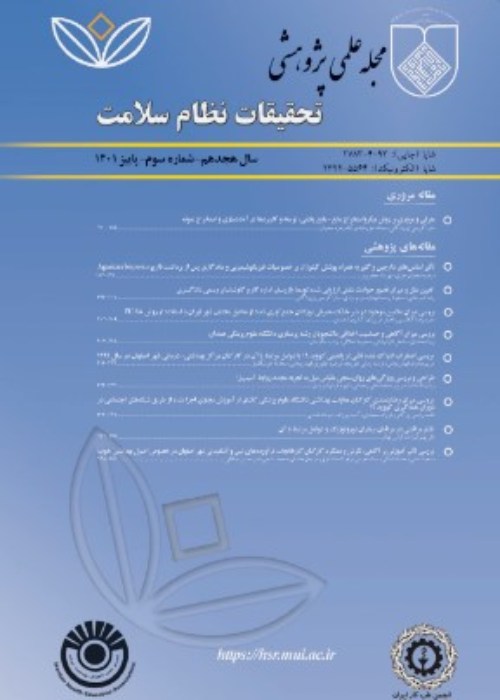Influence of Omega Fatty Acids on Mental Disorders
Author(s):
Abstract:
A growing number of observational and epidemiological studies have suggested that mental illness، in particular mood disorders، is associated with decreased dietary intake and/or cellular abundance of omega-3 polyunsaturated fatty acids (PUFA). This has prompted researchers to test the efficacy of omega-3 PUFA in a range of different psychiatric disorders. We have critically reviewed the double-blinded placebo controlled clinical trials published prior to April 2009 to determine whether omega-3 PUFA are likely to be efficacious in these disorders. Most trials involved a small number of participants but were largely well designed. Omega-3 PUFAs were well tolerated by both children and adults with mild gastrointestinal effects being the only consistently reported adverse event. There was little evidence of a robust clinically relevant effect for schizophrenia. In the case of attention deficit hyperactivity disorder (ADHD) and related disorders، most trials showed at most small benefits over placebo. A limited meta-analysis of these trials suggested that benefits of omega-3 PUFA supplementation may be greater in a classroom setting than at home. A meta-analysis of trials involving patients with major depressive disorder and bipolar disorder provided evidence that omega-3 PUFA supplementation reduces symptoms of depression. Furthermore، meta-regression analysis suggested that supplementation with eicosapentaenoic acid may be more beneficial in mood disorders than with docosahexaenoic acid (DHA); although several confounding factors prevented a definitive conclusion being made regarding which species of omega-3 PUFA is most beneficial. The mechanisms underlying the apparent efficacy of omega-3 PUFA in mood disorders compared to schizophrenia were discussed as is a rational for the possibly greater efficacy of eicosapentaenoic acid compared to docosahexaenoic acid. While it is not currently possible to recommend omega-3 PUFA as either a mono or adjunctive-therapy in any mental illnesses، the available evidence is strong enough to justify continued study، especially with regard to attention، anxiety and mood disorders.
Keywords:
Language:
Persian
Published:
Journal of Health System Research, Volume:9 Issue: 4, 2013
Pages:
333 to 334
https://magiran.com/p1174998
دانلود و مطالعه متن این مقاله با یکی از روشهای زیر امکان پذیر است:
اشتراک شخصی
با عضویت و پرداخت آنلاین حق اشتراک یکساله به مبلغ 1,390,000ريال میتوانید 70 عنوان مطلب دانلود کنید!
اشتراک سازمانی
به کتابخانه دانشگاه یا محل کار خود پیشنهاد کنید تا اشتراک سازمانی این پایگاه را برای دسترسی نامحدود همه کاربران به متن مطالب تهیه نمایند!
توجه!
- حق عضویت دریافتی صرف حمایت از نشریات عضو و نگهداری، تکمیل و توسعه مگیران میشود.
- پرداخت حق اشتراک و دانلود مقالات اجازه بازنشر آن در سایر رسانههای چاپی و دیجیتال را به کاربر نمیدهد.
In order to view content subscription is required
Personal subscription
Subscribe magiran.com for 70 € euros via PayPal and download 70 articles during a year.
Organization subscription
Please contact us to subscribe your university or library for unlimited access!


